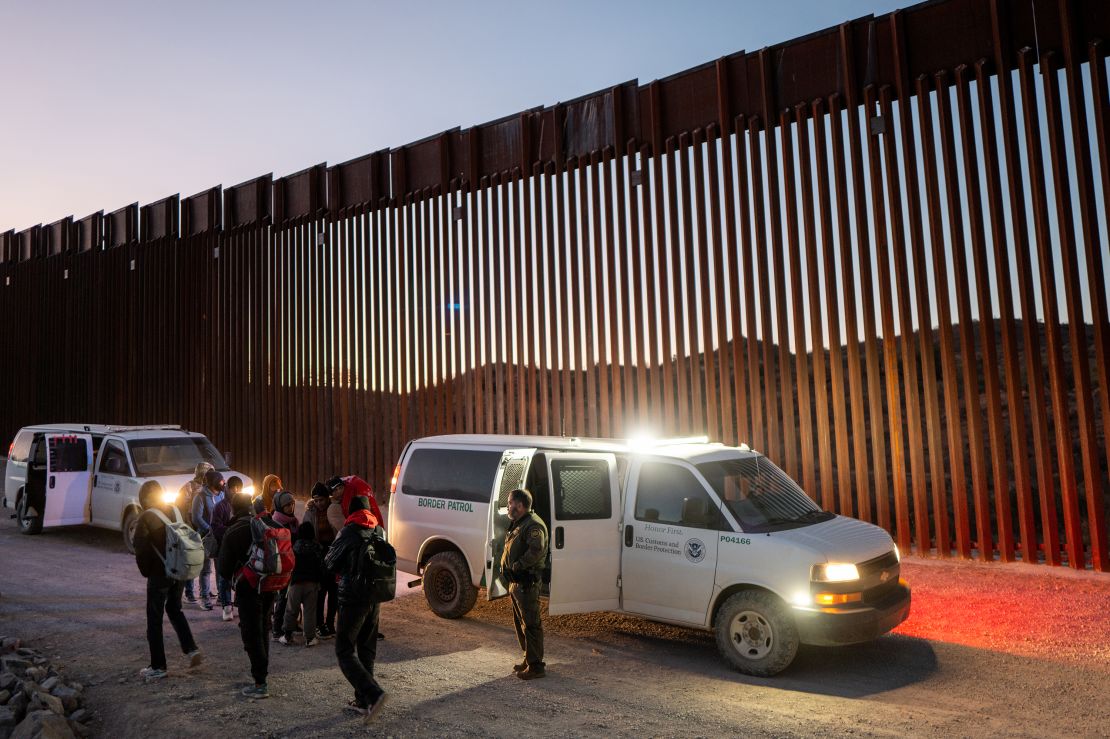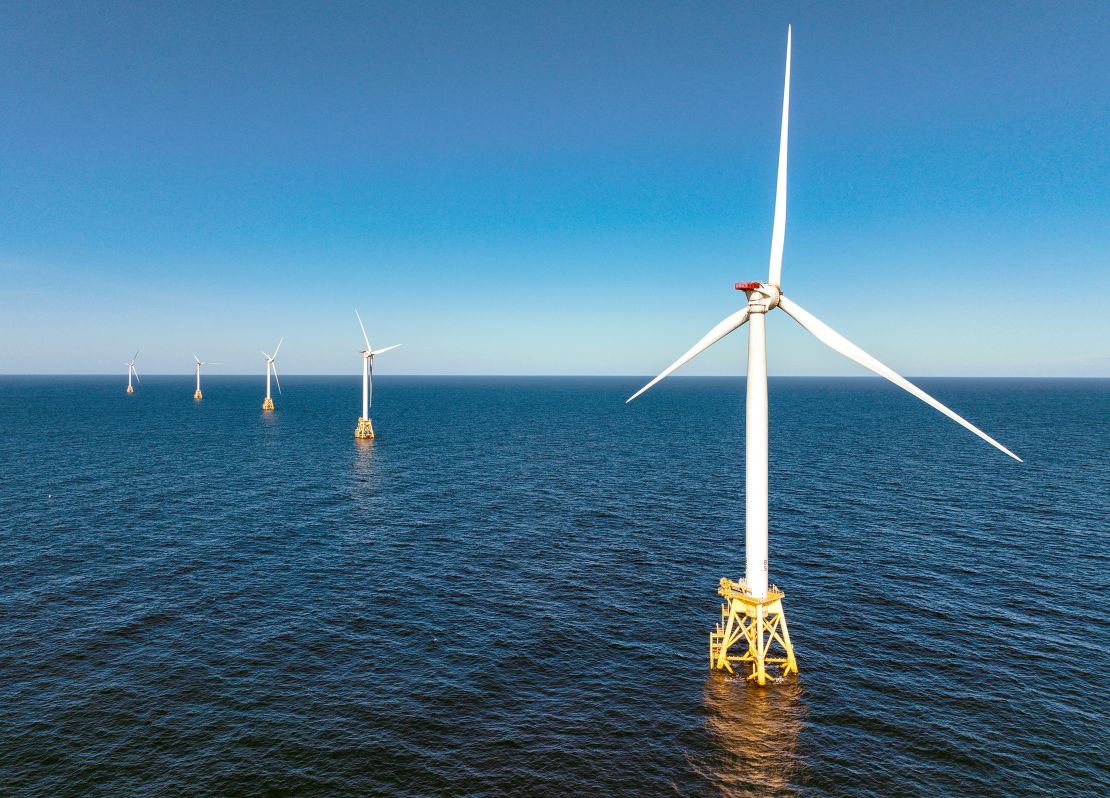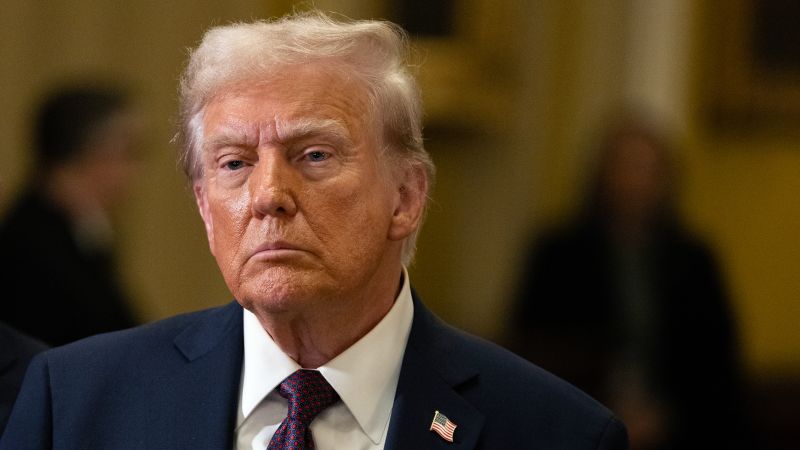CNN
—
At noon Monday, a new Donald Trump era begins.
A stack of actions designed to reshape government policy will be awaiting the new president’s signature as soon as he is sworn in — a dramatic show of force meant to set the tone for the next four years.
Trump is unlikely to wait until he reaches the Oval Office to bring out his Sharpie pen; after musing on the campaign trail of placing a “tiny desk” on the inaugural platform to sign his orders, some will await him at the US Capitol immediately after his swearing-in.
Yet the new era will be felt far beyond the walls of the Capitol — where Trump will be sworn in indoors, due to expected bitter cold — or the executive mansion.
In major metropolitan areas, immigration raids could begin almost immediately as the new president follows through on campaign promises to deport undocumented migrants.
Inside jail cells, January 6, 2021, defendants will await word of pardons, which Trump has promised to sign as soon as he returned to power.
And across the globe, leaders in foreign capitals will watch anxiously to see how the new American leader begins executing his plans for tariffs, land grabs and an end to grinding wars.
“Your head will spin when you see what’s going to happen,” Trump once promised of his Day 1 plans.
For his supporters, the moves will amount to a thrilling fulfillment of the populist, anti-immigrant themes of his campaign. But to those opposed, they will signal a dark new moment — and a call to legal action.
Trump is planning to issue dozens of executive actions — more than 100 just on Day 1, at least in his own telling — within his first week in office, sources familiar with his plans told CNN, including those aimed at ramping up US energy production, tightening border security, reeling in regulations and other top policy priorities. He’s also seeking options to keep TikTok available in the United States, a task made urgent by a Sunday deadline to ban the app. “I’ll be making the decision,” he told CNN’s Pamela Brown by phone on Friday after the Supreme Court upheld the ban.
It’s almost certain some of the items Trump promised on the campaign trail to execute on his first day won’t happen.
But the scale of Trump’s plans — if they materialize — would go well beyond any recent president’s attempts at wielding the power of his office, testing the limits of the presidency.
In the eyes of Trump and his team, the flurry of actions on his first day will herald the arrival of a new regime — a sharp break not only from the last four years but also from the chaos that governed the early days of Trump’s first go-around.
This time, the message is one of swift action, on a greater scale and with better coordination.
“We want to come in and show just how serious we are. Trump is back, it’s go time. Like a shock to the system,” one Trump adviser told CNN.
Preparation for Trump’s first day in office has been in the works since well before he won last year’s election. Conservative groups have spent the last four years exploring the bounds of executive power and looking for avenues Trump could take on a wide array of policies should he return to the White House.
“It’s going to be the equivalent of sending George Patton into Europe to win World War II,” a second Trump adviser told CNN, describing the “rapid-fire, very intense” executive actions that have been prepared to start crossing off Trump’s second-term policy goals.
More recently, planning for Trump’s first day back in the Oval Office has been a top priority for Susie Wiles, the incoming White House chief of staff, who has studied what other presidents have done and has charted a course for what Trump should — and shouldn’t — do in the first hours after taking office.
Wiles, the first woman to hold the title and to occupy the corner suite in the West Wing, has consulted with nearly every living former White House chief of staff. She also has strategized with Senate Majority Leader John Thune and House Speaker Mike Johnson about “how the whole team will work as one,” a GOP adviser said, mindful that “the clock starts ticking on the Trump term as soon as he takes the oath.”

When he met with Senate Republicans earlier this month at the Capitol, Trump said he was preparing more than 100 executive orders for his first day, reflecting a pledge to bolster immigration enforcement, improve border security and implement other priorities.
He vowed to work with Congress on the legislative agenda — and signaled his intent to bypass it on his campaign promises — to hit the ground running in a way he struggled to do during his first term.
“We’re all in line with getting the result,” Thune told reporters after the meeting.
In addition to the paperwork incoming presidents sign immediately after the inauguration ceremony — formally nominating members of his Cabinet and other positions — Trump is making plans to sign some of the executive actions before retiring to the celebratory Senate lunch, advisers said.
Later, after a parade that has been moved indoors due to the weather, he’s planning a signing ceremony in the Oval Office — newly redecorated to suit his tastes as he settles in for the second time.
Amid the flurry of presidential activity, there’s one event that, unlike prior years, that is not expected to take place: a press briefing.
Sean Spicer, Trump’s first press secretary, used his first appearance behind the podium to lecture reporters about Trump’s inaugural crowd size and Cabinet nominees — a move he later said he regretted.
On the topic most central to his political identity — immigration — Trump’s team is finalizing an aggressive slate of orders that will be released only hours after the president-elect is sworn in, kicking off an immigration crackdown that will have implications for people nationwide, according to two sources familiar with the discussions.
The package of actions amounts to a dramatic shift in immigration policy that will affect immigrants already residing in the United States and migrants seeking asylum at the US-Mexico border.
The planning also includes increased ICE personnel on the ground targeting undocumented immigrants with criminal backgrounds who are eligible for removal in major metropolitan areas, like Washington, DC; Denver; and Chicago, along with others who may be encountered in those operations, according to a source.
“You’ll see removal planes, reports of arrests occurring, ICE action in sanctuary jurisdictions,” one source told CNN, referring to the incoming administration’s deportation plans. “As you get into 30 days and first 100 days, that’s where you’ll see a consistent drumbeat.”

The Trump plans include at least a half a dozen executive actions that clamp down on the US southern border, roll back Biden administration policies and double down on interior enforcement, the sources told CNN — executing on promises that Trump made on the campaign trail.
His Day 1 executive orders also include launching negotiations for the return of the program informally known as Remain in Mexico, which required migrants to stay in Mexico while they went through immigration proceedings in the US.
His team is also preparing to launch negotiations to reimplement what was previously known as Asylum Cooperative Agreements, sources said.
The agreements — initiated during Trump’s first term — marked a significant shift in US asylum policy as migrants who may have legitimate claims for asylum could be sent to other countries to make their cases.
During Trump’s first days in office, the new administration is expected to unleash a wave of executive orders dismantling Biden’s energy policies, according to sources briefed on the effort, with orders aimed at slashing regulations and oversight for fossil fuel projects.
The series of executive orders will largely echo actions Trump took during his first term, with an early order establishing that administration’s big-picture focus on energy independence and economic growth.
Trump is expected to instruct the Department of Energy, Environmental Protection Agency and Department of Interior to review all Biden-era energy policies, with major changes expected to come at those agencies.
On Biden’s first day in office in 2021, he signed orders rejoining the Paris climate accords and extolling science in public health and climate. Over the four years that followed, the Biden administration promoted electric vehicles and backed regulations that would increase the number of EVs and fuel-efficient hybrids on the roads.
Trump is expected to undo much of that work by once again withdrawing from the Paris accords, undoing Biden limits to drilling offshore and on federal lands, and rescinding orders to prioritize climate issues in foreign policy. Trump is also expected to reverse Biden’s pause on the export of liquefied natural gas, which he halted in 2022 amid high energy prices.

The Trump team is also drafting executive order language to halt offshore wind activities on the East Coast and seek more lasting roadblocks for offshore wind energy, which Trump has long disliked.
Trump’s team is also weighing an executive order to reauthorize a permit for the Keystone Pipeline, which is currently seen as a largely symbolic move considering the construction on the pipeline has been halted indefinitely after years of legal and political uncertainty.
Trump is expected to slap new sanctions on Iran, as incoming administration officials vow to return to “maximum pressure” on the regime. Restrictions on oil exports would remove about 1 million barrels of oil per day from the global market, creating a slight squeeze on supply as Trump calls for the US to produce more.
Trump has indicated to his close advisers that he wants to deliver on wide-ranging tariffs as soon as he takes office — and he posted on Truth Social that placing steep levies on China, Canada and Mexico would come on Day 1. But advisers have been working to craft the approach, meeting last week to discuss how to proceed. Instituting smaller tariffs that gradually increase if negotiations don’t meet the president’s demands is one option that garnered support, but it remains unclear how quickly the team is prepared to put any policy in place.
The breadth of Trump’s planned actions will almost certainly stop short of the dizzying array of actions he promised as a candidate to take on his first day in office.
He vowed to end the Russia-Ukraine war before even entering the White House — a goal that seems unlikely, even as his team gets to work setting up a meeting with Russian President Vladimir Putin.
And a promise to end birthright citizenship would require changing the Constitution, which is not something that can be accomplished in a day.
His pledge to pardon those charged or convicted in the January 6, 2021, riot at the US Capitol could also prove a complicated endeavor. Even Vice President-elect JD Vance acknowledged recently that criminals accused of violence shouldn’t be pardoned, saying there was a “bit of a gray area” in some cases.
Nothing is stopping Trump from fulfilling other Day 1 promises, including applying the steep new tariffs on imports from Mexico and Canada — a step that could send shocks through the North American economy — or from ordering a cut in funding to schools with vaccine mandates.
All those promises come due Monday.
